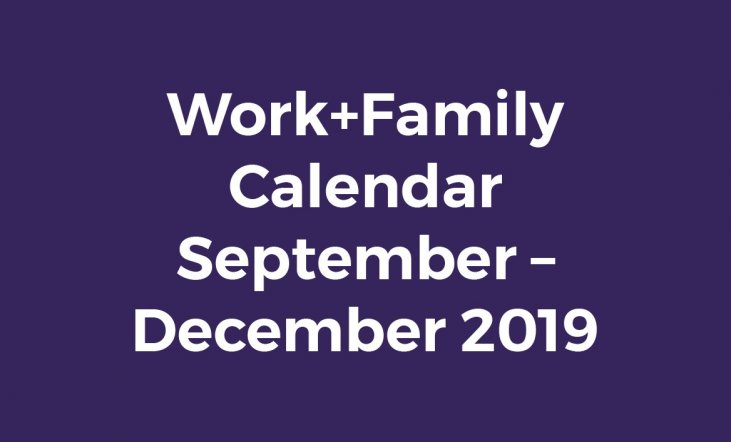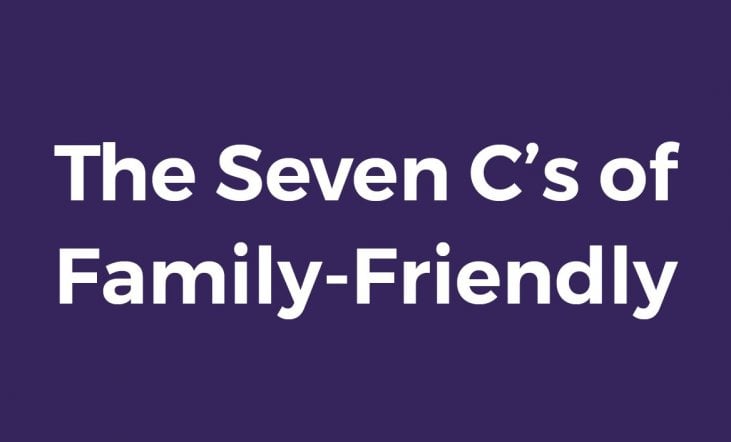Newsletter Sign Up
Regular work+family updates for
HR and diversity professionals.
My Family Care asks Rebecca: We live in a society where children are growing up very quickly, and this question often comes up: do they have enough time to be kids? What encourages this instant growing up? Do we send them to school too early? How can we encourage kids to be kids?
What do we mean by being a child?
To me, being a child is about learning - starting from the moment they are born when they learn to suckle, through learning to walk, talk and play, life is one continuous journey of learning.
The learning should be fun, almost as if they don't know they are doing it - like lion cubs in the wild who stalk each other through the grass, learning the first skills of hunting.
The real question is whether our children are learning things that are appropriate for their age, and in a manner that is similarly appropriate.
A nurturing environment for children
Whether we send our children to school too early depends entirely on what the school environment is - not just what they are learning, but also how they are learning it. Both of my children started "school" in the nursery class of a primary school.
My daughter (now 3 and a half) has just finished two terms there and in a relatively short space of time (6 months) has learnt to socialise with other children, write some of the letters of her name and count to 20. Anyone who knows her will know that if she didn't want to learn any of these things, she would resist, but it is clear to me (and her teachers) that she has enjoyed learning.
There are, at this age, no goals set by parents or teachers, and everything she has learnt has been through play. It is clear to us as parents that she has developed in many ways that are appropriate for her age, and most importantly, that she has enjoyed doing so.
The thirst for knowledge
My son (5 and a half) is just finishing his reception year during which he has learnt to read, write and develop some fabulous friendships - with some other life skills thrown in along the way like how to deal with tussles in the playground. At parents evening we got to see some of his work - he can write full sentences!
The maths worksheets are based on pirates collecting gold coins and one day a couple of weeks ago he read a book to the nursery children, pretending to be a teacher. What's not to love? Last week I asked him what he liked about school, he had an enormous grin on his face as he replied "I love maths. Actually I love everything, because I love learning."
That says it for me - too young for school? Not if they're stimulated to learn in a nurturing and caring environment that caters to the needs of each child as an individual (acknowledging, for example, that summer babies might need more support and time to learn).
Learning at the right pace
The other point I think is important is that I recognise my own limits. Accepting that learning at the right pace is important, and that adults are responsible for teaching children what they need to know in life, I know that my children's teachers have the skills, time, energy and patience to teach them in a way that I don't.
That's not to say that I don't take my role as a parent seriously and with a sense of responsibility for helping my children to learn. My son loves his reading and will read something every night before bed (although he seems to turn into a groaning monster when I suggest he practices his writing!).
We talk about the world, we encourage him to eat new types of food, we teach him about right and wrong (as we believe them), to be kind, forgiving, tolerant and generous but also to stand up for what he believes in.
All of this is done with half a mind on his age. He is not yet 6, so there is a limit to what he needs to understand about the world at this age. Likewise, my daughter at 3.
Doing the best you can
In my mind, if our children are growing up too early, it's not because of when and what they learn at school. The real challenge for us as parents is to be aware of what they are learning outside of the classroom - from social media, advertising campaigns, magazines and TV shows that promote the idea that our children are not yet mature enough to fully understand and comprehend the consequences of.
It's not something I have yet got my head around, but I can already see from friends with older children than mine, that it's a minefield out there. In the meantime, we are trying our best to do the most important thing for our children: to behave like the people we want them to be - at times the most difficult task of all.
Rebecca Ford Johnson, Maternity Coach and Mother of two












